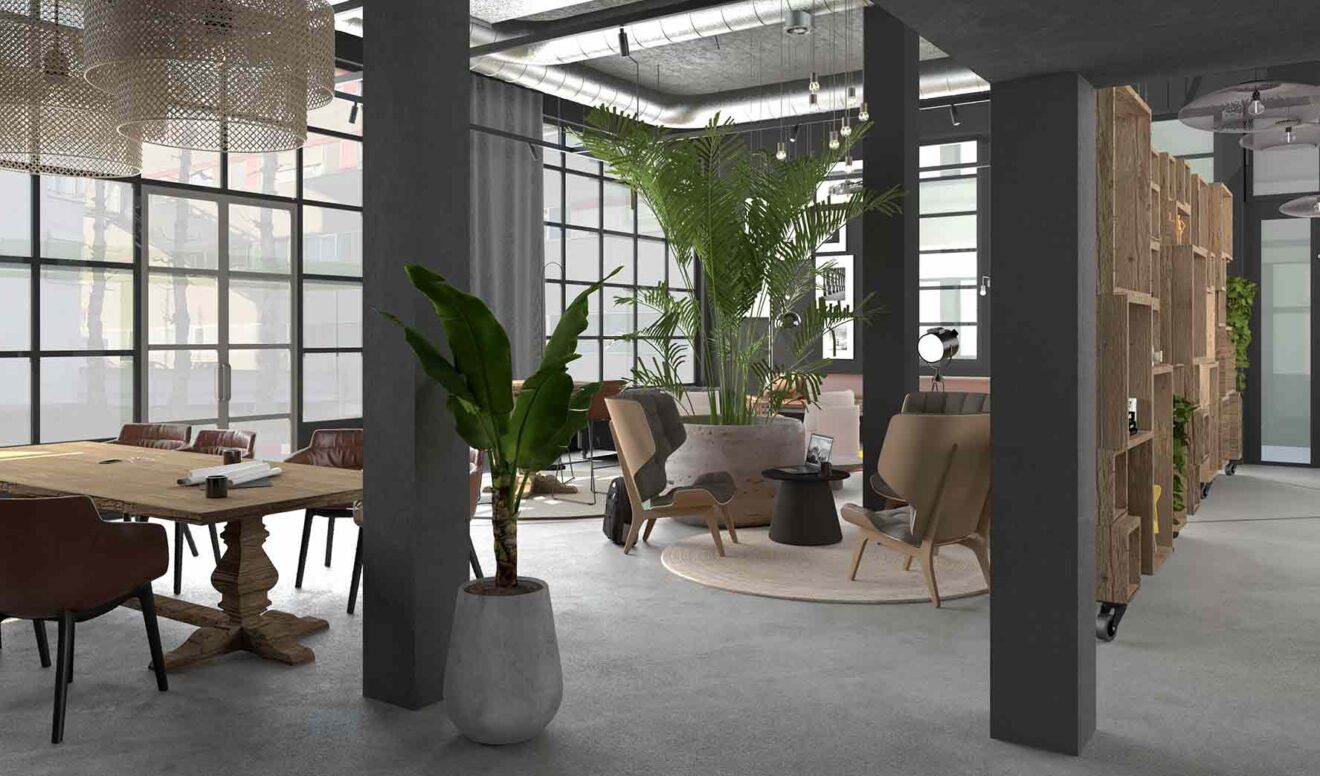
Incubation in creativity research refers to the phase of the creative process when the creator’s mind is on pause and unconsciously working on problem solving. In this phase, new ideas or solutions can emerge that were not previously obvious. The incubation phase usually follows the preparation phase and precedes inspiration and realization.
How do incubation phases work?
Some theories about how the incubation phase works in the creative process state that during this phase unconscious processes take place in the brain that can help clear blockages and generate new ideas. Another theory suggests that the incubation period is to avoid mental fatigue that can result from overthinking or focusing on a problem. Another theory suggests that incubation helps create unconscious associations and connections between different ideas and concepts that can lead to new and innovative solutions.
Coworking spaces can offer an inspiring environment and serve as a stimulus for incubation phases in creative processes.
Here are some reasons why coworking spaces can be beneficial:
Diverse community
Coworking spaces bring people from different industries and backgrounds together. Sharing with like-minded people or people with different perspectives can provide new ideas and food for thought. Conversations, discussions and informal cooperation can lead to innovative solutions.
Collaborative atmosphere
Coworking spaces promote collaboration and open exchange between members. The opportunity to network with other coworkers and share common projects or interests creates synergies and new ideas.
Flexibility and freedom
Coworking spaces offer a flexible work environment where people can shape their own way of working. Being able to customize the workplace according to individual needs can help create an environment that encourages creativity. People can determine their work rhythm themselves, stay in different rooms or sometimes work in different places, which can support the incubation process.
Inspiration from the environment
Coworking spaces are often designed to provide an inspiring atmosphere. Attractive design, interesting works of art, plants or other aesthetic elements create a positive mood that can stimulate creativity. The opportunity to be in a lively environment with other creative people can also be motivating and inspiring.
Resources and Events
Many coworking spaces offer additional resources and events such as workshops, lectures or networking events. By participating in such activities, coworkers can expand their knowledge, learn new skills, and broaden their perspectives. Such offers can stimulate the incubation process and lead to new ideas.
Access to analogous problems and their solutions
Knowledge of analogous problems and their solutions can consciously or unconsciously stimulate the incubation process. Analogies are comparisons between two different situations that share similar structures or patterns. By using analogies, one can transfer solutions from other areas or contexts to a current problem.
By exchanging ideas with other people who have mastered similar or related challenges, new perspectives can be gained.
Other sources to encourage the incubation process
Attend events and conferences to network with other creatives and experts and gain new knowledge.
Reading books and journals and becoming familiar with different topics and perspectives.
Visit nature or other inspiring places to refresh the mind and generate new ideas.
Seek out mentors or advisors for valuable insight and feedback.
Use online resources to gather inspiration and information.
© 2023, Innovator’s Guide Switzerland / July 17, 2023
